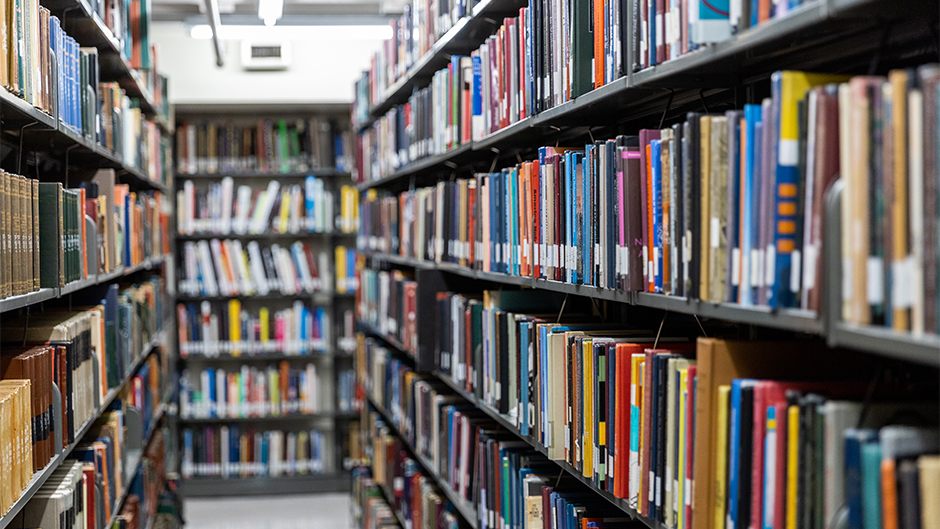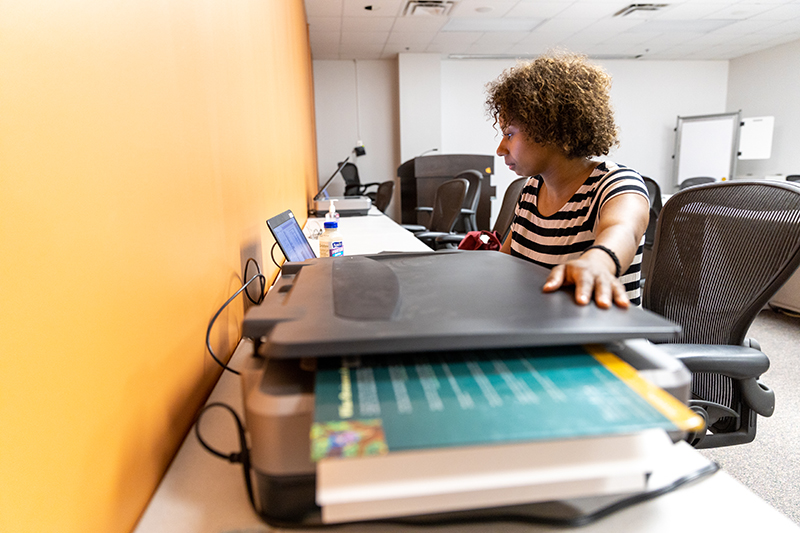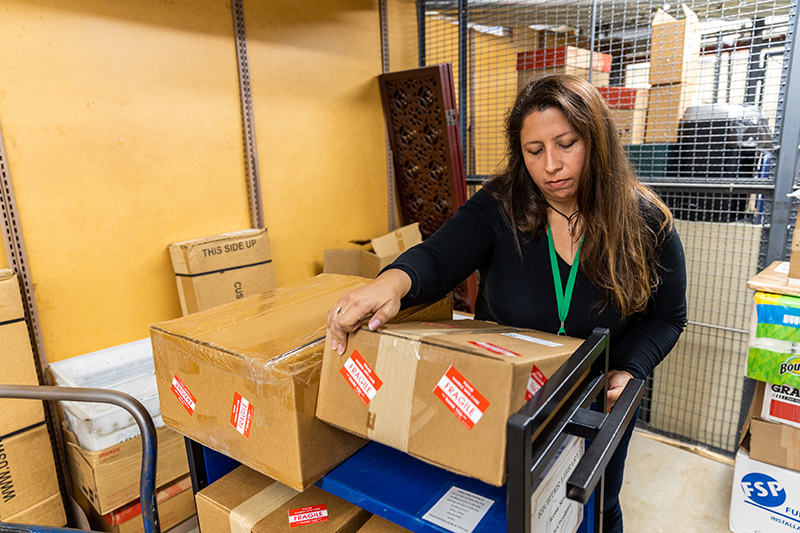On Thursday, March 12, the University of Miami announced that all courses would move to online/remote/distance learning environments starting Monday, March 23. While necessary, the transition posed new challenges for the University community. How do you move an entire semester’s worth of classes online in a week? That is exactly what Richter Library’s access services unit at the University of Miami Libraries (UML) was able to help facilitate. Led by Glen Wiley, associate dean for access and discovery services, a team of about 12 staff members, based in Otto G. Richter Library, developed ways to ease the transition to online courses by providing seamless access to library resources and services.
One request at a time
Moving printed course materials online is among the challenges University faculty face during this transition. With much of the material only physically available at the library, faculty rely on the team at the Department of Access and Discovery Services to assist in digitizing these materials. Above, Alexa Glenn, a stacks coordinator, scans select chapters for a course on child and adolescent psychology. This room—once filled with laptops for in-person library instructional sessions—is now vacant and transformed into a space for scanning.
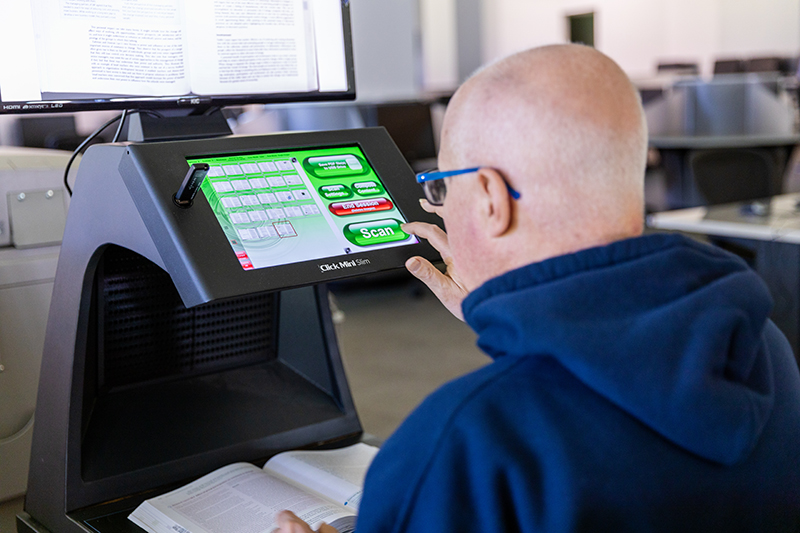
Scanning efficiently
Traditional scanning as we know it is a slow, time-consuming process, and with the task of bringing the entire university online in a week, the team was in a time crunch. So, the team had to make good use of its Knowledge Imaging Center (KIC) book scanning systems—self-service digitization stations. KIC allows the scanning of large volumes of books in a fraction of the time. Above, Drew Wofford, reserves supervisor, works on the library’s KIC station to digitize materials to be added to the online course reserves via Blackboard.
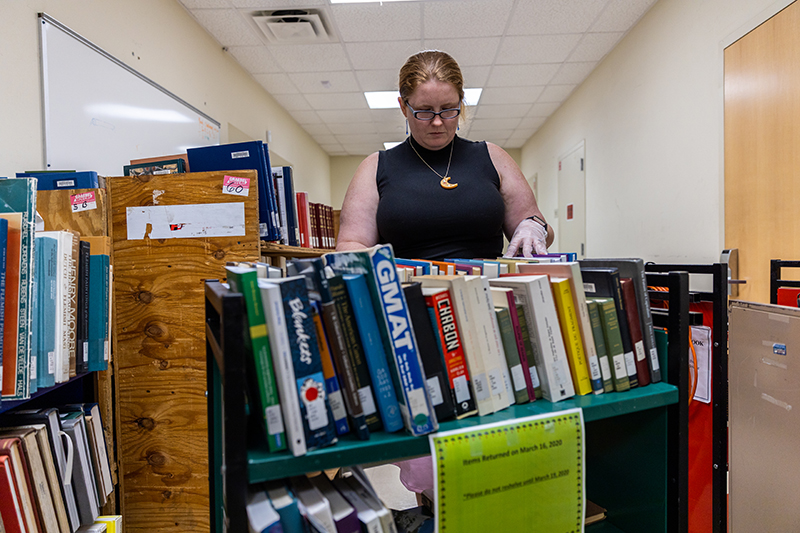
Quarantined pages
The threat of contamination isn’t only causing humans to be quarantined. “Research has shown that the novel COVID-19 can survive on paper surfaces for up to 24 hours,” explained Wiley. “When books are returned to the library now they are immediately placed on a quarantine cart by a gloved employee. The cart is then set aside for 48 hours before the books can be returned to the stacks.” Above, Stephanie Johnson, lead lender for interlibrary loans, reviews the cart of returned books to be reshelved.
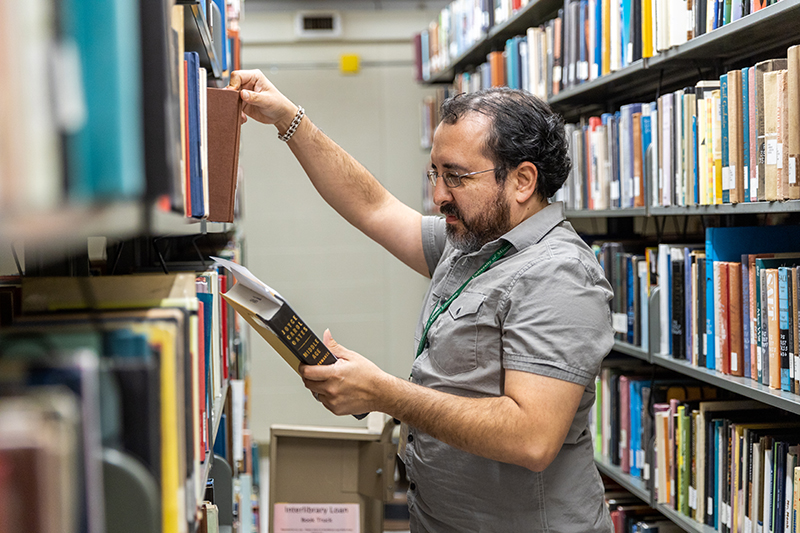
Searching the stacks
While we may try to move as much as we can to a digital frontier in these unprecedented times, some teaching and research work will still require a tangible book in your hand. For faculty members, this requires books to be pulled from course reserves. Above, John Sandoval, interlibrary loan and course reserves manager, pulls books from stacks based on a list of requested materials. The books are available for pick up by faculty members from a table in the breezeway outside the library until Friday, March 20.
Keeping the engine humming
The Richter Library—like any other building on campus—could not run without its distinct employees. Above, Martha Diaz, a facilities operations representative, organizes a recent shipment of boxes. Similar to returned books, these boxes are placed in quarantine when received before they are opened.
Over the course of one week, the library’s access and discovery services team was able to digitize 5,749 pages in 26 different books and fulfill 37 requests from the University community to help launch online learning. The team is still supporting online instruction through e-reserves but due to concerns for health and well-being of the library staff these on site operations were discontinued once courses went online. Subject librarians are available to consult with faculty if they wish to add content that does not appear to be available in digital format. These consultations may lead to alternative materials, open access materials, or other content that can be acquired by the subject librarian for course use.
The departments and employees pictured highlight only a few aspects of what UML has been doing under new and evolving circumstances. In addition, employees from other areas of UML have shifted to online delivery of consultations, instructional sessions, and workshops using video communication platform technologies, whenever possible. Only the Calder medical library on the Miller campus remains open. It is staffed exclusively by security personnel and access is granted strictly to UM and Jackson Hospital ID holders. UML remains open online with virtual services. UML continues working on ways to ease the transition to online courses for faculty and students and to provide seamless access to library resources and services.
This is part of a series highlighting teams at the U. Do you have a story about a colleague who has gone above and beyond while working remotely or on campus, let us know at lifeattheu@miami.edu.
